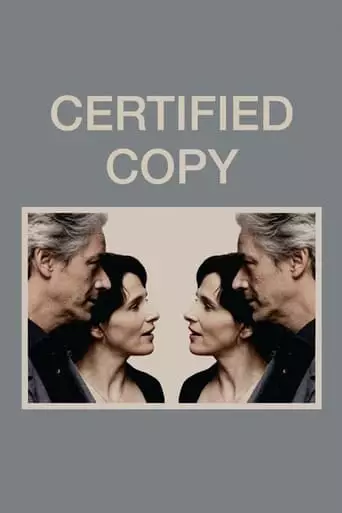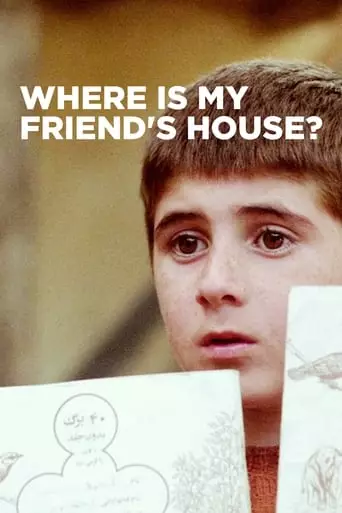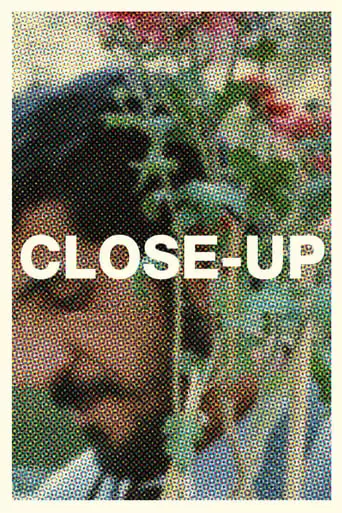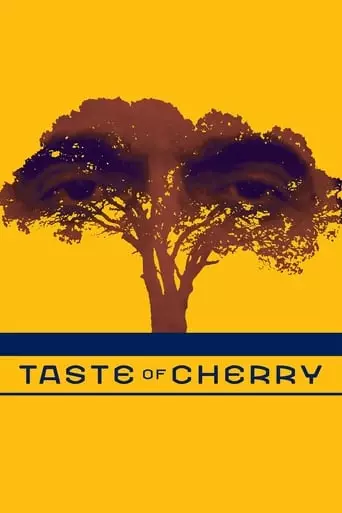In Tuscany to promote his latest book, a middle-aged English writer meets a French woman who leads him to the village of Lucignano. Certified Copy is a 2010 film directed […]

In Tuscany to promote his latest book, a middle-aged English writer meets a French woman who leads him to the village of Lucignano. Certified Copy is a 2010 film directed […]

An 8 year old boy must return his friend’s notebook he took by mistake, lest his friend be punished by expulsion from school. Where Is My Friend’s House? is a […]

This fiction-documentary hybrid uses a sensational real-life event—the arrest of a young man on charges that he fraudulently impersonated the well-known filmmaker Mohsen Makhmalbaf—as the basis for a stunning, multilayered […]

A middle-aged Tehranian man, Mr. Badii is intent on killing himself and seeks someone to bury him after his demise. Driving around the city, the seemingly well-to-do Badii meets with […]

An old man and a young woman meet in Tokyo. She knows nothing about him, he thinks he knows her. He welcomes her into his home, she offers him her […]
Abbas Kiarostami: The Poet of Iranian Cinema
Abbas Kiarostami (1940–2016) was a visionary filmmaker, screenwriter, and photographer whose profound and minimalist approach to storytelling reshaped global cinema. A central figure in the Iranian New Wave, Kiarostami’s films explored themes of life, death, identity, and the human condition with poetic elegance. His works, such as Close-Up (1990), Taste of Cherry (1997), and Certified Copy (2010), are celebrated for their meditative pacing, philosophical depth, and innovative narrative techniques.
Kiarostami’s legacy transcends borders, earning him a place among the greatest auteurs in the history of cinema.
Early Life and Career Beginnings
Abbas Kiarostami was born on June 22, 1940, in Tehran, Iran. As a child, he demonstrated an early interest in art and literature, excelling in painting and poetry. He later studied at the University of Tehran’s Faculty of Fine Arts, focusing on graphic design.
Kiarostami’s creative journey began in advertising, where he directed commercials that showcased his ability to tell compelling stories in a short format. In 1969, he joined the Institute for the Intellectual Development of Children and Young Adults (Kanun), where he began making short films and documentaries. This period laid the foundation for his distinctive style, marked by simplicity, realism, and a deep empathy for his subjects.
The Rise of an Auteur: The Koker Trilogy
Kiarostami’s international breakthrough came with Where Is the Friend’s House? (1987), the first film in what would later be known as the Koker Trilogy. The film tells the story of a young boy’s journey to return his classmate’s notebook, blending a child’s perspective with universal themes of responsibility and compassion. Its unadorned storytelling and focus on everyday life captured the attention of critics worldwide.
The trilogy continued with And Life Goes On (1992) and Through the Olive Trees (1994), both set in the aftermath of a devastating earthquake in northern Iran. These films blurred the lines between fiction and reality, a hallmark of Kiarostami’s work, as he explored the resilience of ordinary people in the face of tragedy.
Close-Up: A Masterpiece of Meta-Cinema
In 1990, Kiarostami directed Close-Up, a groundbreaking film that cemented his reputation as a cinematic innovator. The film reconstructs the true story of a man who impersonates a famous filmmaker to gain the trust of a family, blending documentary footage with re-enactments featuring the real-life participants.
Close-Up is a profound meditation on identity, art, and the power of cinema, challenging traditional notions of truth and fiction. It is widely regarded as one of the greatest films ever made, praised for its empathy and intellectual rigor.
Taste of Cherry: International Acclaim
Kiarostami’s Taste of Cherry (1997) won the Palme d’Or at the Cannes Film Festival, bringing him global recognition. The film follows a man driving through the Iranian countryside, searching for someone to bury him after his planned suicide. Its minimalist approach, open-ended narrative, and philosophical inquiry into life and death divided audiences but solidified Kiarostami’s status as a master of existential cinema.
Expanding Horizons: Certified Copy and Global Filmmaking
In the 2000s, Kiarostami began working outside Iran, exploring new cultural contexts while maintaining his distinctive style. Certified Copy (2010), starring Juliette Binoche, marked his first film shot entirely abroad, in Italy. The film examines themes of authenticity, love, and identity through the story of a couple whose relationship may or may not be real.
Certified Copy was met with critical acclaim, with Binoche winning the Best Actress award at Cannes. It demonstrated Kiarostami’s ability to adapt his vision to different settings while retaining his poetic sensibility.
Style and Themes
Kiarostami’s films are characterized by their minimalist aesthetics, long takes, and use of non-professional actors. He often employed open-ended narratives, inviting viewers to interpret the story and draw their own conclusions. His use of natural landscapes and the interplay between characters and their environments created a sense of intimacy and universality.
Recurring themes in Kiarostami’s work include the search for meaning, the relationship between art and reality, and the resilience of the human spirit. His films often blurred the boundaries between documentary and fiction, challenging traditional cinematic conventions.
Photography and Poetry
In addition to filmmaking, Kiarostami was an accomplished photographer and poet. His photography, often focusing on landscapes and natural forms, reflected his fascination with simplicity and the passage of time. His poetry, much like his films, explored profound themes with a sense of clarity and elegance.
Legacy and Influence
Abbas Kiarostami’s influence on global cinema is immeasurable. His innovative storytelling techniques and philosophical approach have inspired countless filmmakers, including Jafar Panahi, Asghar Farhadi, and Martin Scorsese. Kiarostami’s work transcends cultural and linguistic barriers, resonating with audiences around the world.
Despite facing censorship and political challenges in Iran, Kiarostami remained committed to his artistic vision, creating films that celebrated the beauty and complexity of life. His ability to find profound meaning in the ordinary has left an enduring legacy.
Passing and Posthumous Recognition
Abbas Kiarostami passed away on July 4, 2016, in Paris, France, after complications from surgery. His death was mourned by the global film community, with tributes highlighting his unparalleled contributions to cinema.
Today, Kiarostami’s films continue to be studied and celebrated for their timeless artistry and humanism. His work reminds us of the power of simplicity and the importance of seeing the world through a compassionate lens.
Conclusion
Abbas Kiarostami was more than a filmmaker; he was a philosopher, a poet, and a visionary artist. Through his groundbreaking films, he invited audiences to reflect on the beauty and fragility of existence, offering a cinematic experience that transcends time and place. Kiarostami’s legacy endures as a testament to the transformative power of art and the enduring quest for truth and meaning in the human experience.